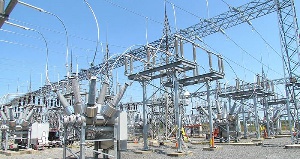The Ministry of Finance says government has saved the energy sector over US$5 billion by relocating the Karpowership power plants and securing agreements with CENIT Power Limited and Cenpower Generation Company Limited under its ongoing renegotiation of power purchase agreements (PPAs).
The ministry said it has also paid in excess of US$1 billion to independent power producers (IPPs) this year alone. This is in addition to the GH¢2.7 billion paid by the Electricity Company of Ghana (ECG) to the IPPs.
“Government has underscored its commitment to undertaking the Energy Sector Recovery Programme (ESRP) in good faith and in partnership with its stakeholders. Government has continued to progress the ESRP and expects to make further announcements soon. Government welcomes the collaboration and commitment shown by IPPs so far and calls for their support in bringing the negotiations to a swift close,” the ministry said in a statement.
The country’s energy sector is faced with a number of challenges.
According to the Finance Ministry, many of these issues were inherited by the current government from the previous administration.
It said while attempting to provide emergency power to address a spate of persistent load-shedding which crippled businesses and adversely affected growth of the economy, the erstwhile Mahama administration signed contracts with IPPs in an uncoordinated and non-competitive manner.
The Ministry said Ghana pays over US$500 million a year in excess capacity payments, that is, payment for power that it simply does not use or need.
Despite the challenges, it said government has prioritised making payments to the IPPs to reduce the debts.
“In our second term, this administration will continue to manage the situation by negotiating more balanced contracts, reducing the debt, instituting careful forward planning and proper data-driven analysis, as well as transparent, competitive, corruption-free energy procurement processes to build a resilient, sustainable energy sector for the good people of Ghana,” it added.
Business News of Tuesday, 8 December 2020
Source: thebusiness24online.net













